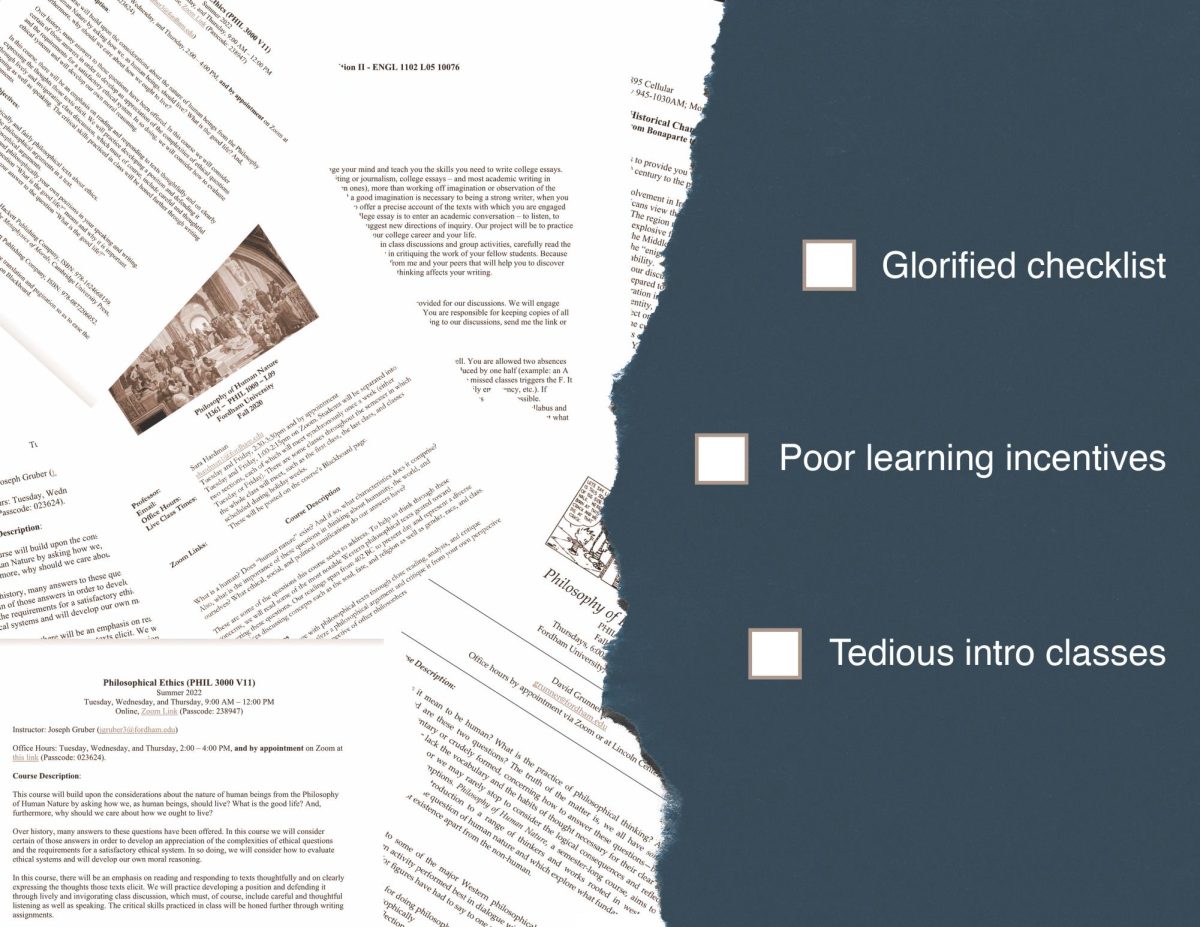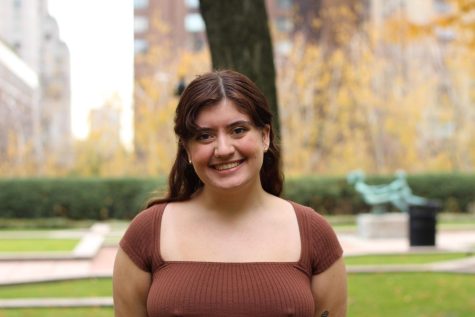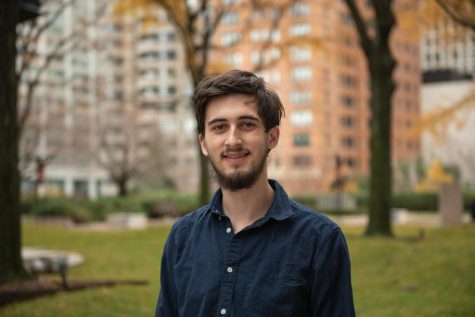Fordham University defines its Core Curriculum as “an education that allows you to foster flexibility, curiosity, and well-roundedness” — or at least that is what it’s intended to be. Alternatively, maybe you have heard students complain that the program precludes them from specialization, “forcing” political science majors to take biology classes and vice versa — because why should a politician need to understand science, right?
The notion of a well-rounded, diverse education is the hallmark of the Jesuit philosophy and tradition which guides Fordham; the Jesuit tenet “magis” translates to “more” and the Jesuits believe that we as students are called to pursue more than what is directly in front of us. The philosophy posits that political science majors should learn biology not necessarily because they will use that knowledge in their career (though they in fact should, if the pandemic has taught us anything), but because there’s inherent virtue in knowledge.
I am not here to debate that point, however, both because I agree with the Jesuit principle and because altering that philosophy would be a fundamental change to Fordham’s guiding principles. Plus, if I did not have an interest in learning for the sake of learning, I probably would not have come to college at all.
The point I am here to argue against is the idea that a glorified checklist of requirements — for Fordham College at Lincoln Center’s core, at least, two English classes, one history, one math, one science, etc. — is the best way to encourage a love of learning.
When I came to college, I was eager to pursue my interests in all their varied forms. Instead, I found myself bogged down by the university’s core requirements. Rather than pursuing higher-level studies in biology or physics, I was required to take “Human Function and Dysfunction,” in which I learned more from Ed Yong, a science journalist, than any real scientist. Instead of studying Shakespearean literature, I was automatically enrolled in “Composition II.” While my professors did a wonderful job trying to make these topics interesting, they were unable to overcome the broad nature of these courses, which were intended (but inevitably failing) to be universally appealing.
Fordham should allow students to pursue a set of their personal varied interests in depth as opposed to mandating students to take these introductory courses in order to satisfy their core requirements. I believe that students majoring in the humanities and the social sciences are capable of understanding complex science and math; similarly, biology and physics majors are capable of reading and writing nuanced arguments. More than anything, I think every student is capable of being pushed outside of their comfort zone — and the Core Curriculum prevents that from happening.
The Core Curriculum is redundant and limiting. It supplants depth with breadth and specificity with versatility, requiring students to fill up their schedule with surface-level courses and leaving little room for rigorous exploration.
I can understand the justification behind “dumbing down” certain subject matters for introductory core classes: Certain students have a higher aptitude for certain topics, and theoretically that corresponds with their chosen major.
While this justification may make sense, however, it’s in direct contradiction to the Jesuit belief in creating well-rounded thinkers and nurturing each person’s fullest potential. A physics major isn’t “inherently” better at math than an English major. A history major isn’t “inherently” better at writing than a computer science major. Even if these examples were true, shouldn’t the point of college be to grow your weakest skills, rather than double-down on your existing strengths?
If the concern is that students won’t seek out courses outside of their existing interests, those students probably shouldn’t be at Fordham.
The university’s admissions website quotes Susan Wabuda, associate professor of history, as saying that “one of the great purposes of human life is to wonder about life, the universe, and creation.” The clearest manifestation of that sense of wonder is seeking out information and skills that an individual does not already possess — if students aren’t interested in that, they’re fundamentally misaligned with the Jesuit pedagogical mission of the university.
The role of admissions at Fordham is to curate a community of intellectually curious students — and I think they’re successful in this objective. My classmates at Fordham are some of the most thoughtful, interesting and intellectual people I’ve met in my life.
For these students, though, the Core Curriculum is redundant and limiting. It supplants depth with breadth and specificity with versatility, requiring students to fill up their schedule with surface-level courses and leaving little room for rigorous exploration. An education interested in “magis” should encourage students to develop their own interests, not just check off requirements on Degree Works.
The Core Curriculum is at the very center of a Fordham education, and to do away with it entirely would be a fundamental alteration to this institution’s character. Eliminating specific course requirements in favor of broader distributional requirements and encouraging students to challenge themselves intellectually rather than sleeping through an introductory English course, however, would more effectively strive toward achieving our Jesuit mission.



